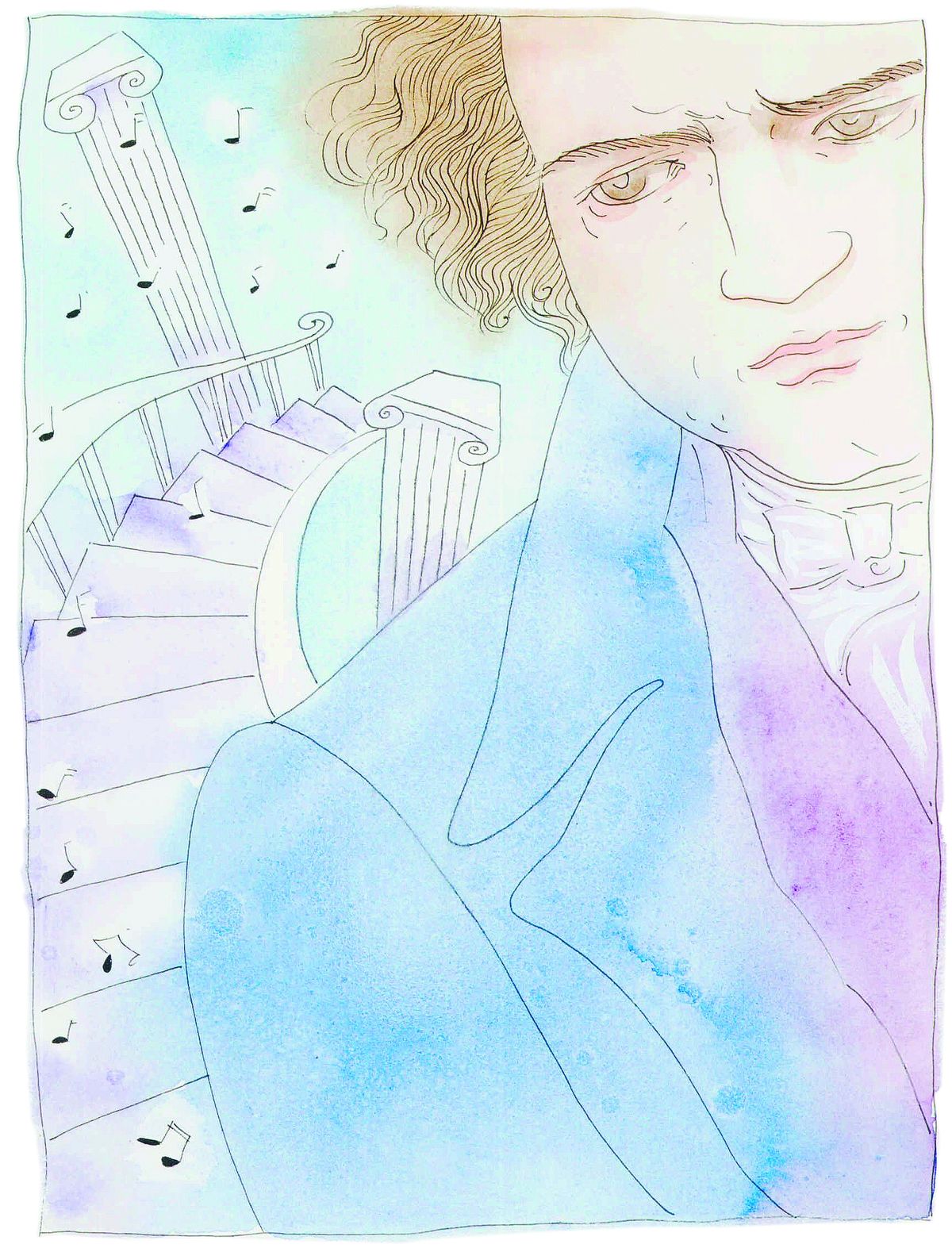Symphony presents two concerts in honor of Beethoven

Ludwig van Beethoven reigns. Still.
It’s hard to name a form in classical music – instrumental music, anyway – that listeners do not associate with Beethoven.
Symphonies, concertos, sonatas, string quartets – most of us encounter these first through Beethoven. He did not invent them, but he put his stamp on those forms in a way listeners have not forgotten in the 182 years since his death.
The Spokane Symphony will play two concerts this weekend presenting two of Beethoven’s symphonies, two of his overtures, and two performances of his Violin Concerto.
Saturday’s performance includes the “Leonore” Overture No. 3 and Symphony No. 1. Sunday’s program has the “Coriolan” Overture and the Symphony No. 5.
For both concerts, Concertmaster Mateusz Wolski will be the soloist in Beethoven’s Violin Concerto in D major. Music Director Eckart Preu will conduct.
The symphony had originally scheduled guest artist Philip Quint as the violin soloist for this weekend’s Beethoven Bash, but switched to Wolski for budgetary reasons.
Wolski, entering his third year as concertmaster, was a logical choice to replace Quint. Like all concert violinists, he knew the Beethoven concerto.
“I had studied it extensively when I was at the Manhattan School in New York, working with Glenn Dicterow of the New York Philharmonic,” he said. “And I had played the orchestral part several times with the Philharmonic and with the Baltimore Symphony.
“Every violinist just waits to play the Beethoven Concerto. Being there when Anne Sofie Mutter recorded it with the Philharmonic, hearing the associate concertmaster Sheryl Staples play it so beautifully at a music festival, and several other violinists, too – coming myself to this piece has been a long journey for me.”
Now it’s his turn to enter the concerto from the soloist’s side.
“This concerto is very virtuosic,” Wolski says, “but it’s not virtuosic just to show off with something flashy, like Paganini. For me, Beethoven’s Concerto is just pure music built out of simple elements but made into something magnificent.
“Beethoven was not always kind to the violinist. He was a pianist and writes like one. Often I feel like it would be good to have an extra finger or two on my left hand to play more easily what he has written.”
Beethoven’s Violin Concerto is one of those acknowledged masterpieces that failed to make an impression at its first performance. It was not until nearly 40 years after its premiere, when a 13-year-old Hungarian prodigy named Joseph Joachim played it in London, that it was on the road to its current status.
Beethoven did, by the way, arrange the Violin Concerto as a Piano Concerto in hopes of rescuing it from its initial failure. But the piano version is almost never performed.
In addition to the Violin Concerto, Preu has programmed Beethoven’s 1806 overture to his only opera, “Fidelio” (called “Leonore” in its early incarnations), for Saturday; and the overture for an 1807 revival of Heinrich von Collin’s 1802 play “Coriolan,” based on the same legendary Roman general as Shakespeare’s “Coriolanus,” on Sunday.
Saturday’s program also includes Beethoven’s Symphony No. 1 which introduced Beethoven, the symphonist, to the Viennese public in 1800.
And Sunday’s concert will end with Beethoven’s most popular work, the Symphony No. 5. That was introduced at a concert in 1808 that also included Beethoven’s Symphony No. 6, his Fourth Piano Concerto, his Choral Fantasy, the concert aria “Ah, Perfido” and movements of his Mass in C – a program more than twice as long as this weekend’s two concerts combined.
Wolksi will join Preu in a discussion of the music on the programs in a pre-concert talk one hour before performance time as a part of the orchestra’s Gladys Brooks Pre-Concert Talks series.
Sunday’s performance is also part of the Symphony YES! series for young listeners, with reduced ticket prices for young people age 8-14 and the adults that accompany them.
Symphony YES tickets are only available through the symphony ticket office. For more information, see www.spokanesymphony.org.